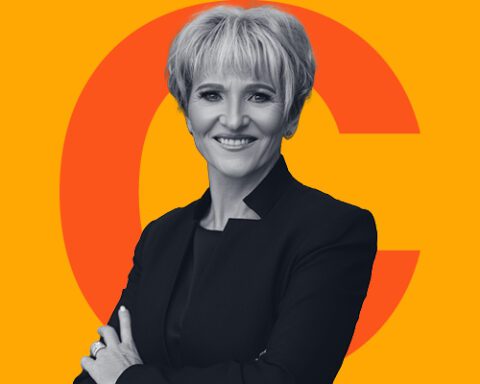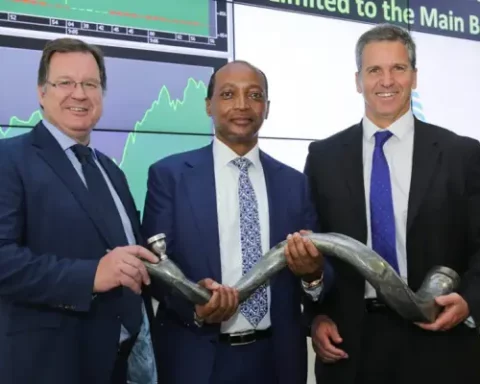Back in July, Currency interviewed one of South Africa’s legendary value investors about the post-government of national unity (GNU) stock market rally. Since then, the JSE all share index has gained a pretty steamy 16%. Here’s the July chat, and his views on where we are now.

What have you made of South Africa’s GNU stock bump?
JB: The background for the value fund is that we just bought South African shares from January 2023 to April 2024. That period was like the most crazy low prices you’ve ever seen because foreigners have been selling for six years, locals were taking money offshore and there were just no buyers. And the election worries weren’t even in the price yet; it was the general demise of South Africa, load-shedding and the ports. In fact, the most shares foreigners sold, of any month ever in dollar terms, happened in May 2024. More than even the global financial crisis of 2008. That’s how worried they were.
So, we thought: share prices say it’s going to be a disaster, but risk adjusted it will be okay. We liked the trade – so we bought even more. In the end we got lucky because the election outcome was even better than we’d hoped. But if it had been a moderate outcome, we would still have made money.
Is it now over?
JB: No. It’s got further to go – it’s that simple. Within the value fund we haven’t sold any shares – and that’s really important because I am very sensitive to price movements and if things go up 40% from the bottom I’d normally sell.
Since we first spoke the market’s up about 15%, so we think there’s probably another 20% to go.
Maybe a good example is Absa. It bottomed at R140 just before the election, putting it on a price-earnings ratio (p:e) of 5.5. Six years ago, during “Ramaphoria”, Absa was on a 12.5 p:e. So, if you just take the midpoint between the two and say: R140 was the price that indicated elections would be a disaster and load-shedding is here forever – the midpoint would be a 9 p:e, which would suggest a valuation of R240. (Absa’s now trading at R175).
Valuations are still too low. Bond yields have fallen as much as 150 basis points – i.e. the cost of money has fallen from 12% to 10.5%, which is enormous! But shares haven’t fully responded to the decline in the cost of money. As for foreigners, if they’ve sold 100, they’ve bought back one, to give you an idea.
Maybe they’re just not coming back?
JB: I would just say as someone who used to be a stockbroker, foreign buyers are incredibly slow to move. They have a lot of processes, most are in the Hamptons sunning themselves, or they have committee meetings, and they are very big trend followers.
But isn’t scepticism about South Africa’s prospects entirely justified, still?
JB: No, it’s not, because the prices are totally different. Forgetting about what’s going to happen – the price is completely different to “Ramaphoria”. Take the Absa example. The prices today are still discounting a bad outcome.
And then I can talk to what can go right: this is less important than the price you pay for a stock but still worth considering. I could argue that the political situation in South Africa today is better than six years ago because Cyril Ramaphosa got in by the skin of his teeth then, and the ANC had a lot of bad actors – say the MK faction and components of the EFF.
There are fewer bad actors today, the radicals are in outside parties and have painted themselves into a corner, so you have a more moderate ANC in coalition with an even more moderate party being the DA.
Then, interest rates are high, but they’re coming down.
And the most interesting thing is the economy: the base is completely shot whereas six years ago the base was average. I can build you a case that South Africa grows at 3% per annum for the next four years, easily. Off these valuations with foreigners absent, and locals invested offshore, you can make a lot of money.
What about issues, like National Health Insurance, that are still on the table?
JB: I thought it was quite telling that Ramaphosa went back to Business Unity South Africa and said come back to me with some proposals on what we should change; I think that’s incredibly important. I think he realises he lost votes because of it and I think since the elections that’s been the major positive. The other positive – short term – is that withdrawals from the two-pot system have been way bigger than people thought and already we’re seeing retail sales picking up way more strongly as a result.
Do you see the money that sprinted offshore coming back?
JB: Gradually. Foreigners are interesting because they sell and buy in massive waves. But why they can’t come back to the full extent as before is that the weighting of South Africa has fallen in the emerging markets index, and some of it because of price action (i.e. share prices falling). Our weighting is about 2% in emerging markets. But that weighting goes up as share prices go up. We used to be 9% of that index but we’re never going back there because of the rise of Saudi Arabia and India.
But if investors go from 2% of the index to 2.5%, it means they have to buy 25% more shares than they have, and that’s something people don’t get. Also, emerging markets as a whole are very attractive. We’ve now got 25% of the value fund offshore. A year ago, it was 5%. And it’s in places like China, Brazil and Chile. South Africa is no longer uninvestable. If I look at South Africa versus the S&P 500, my money is on South Africa .
We have seen some foreign money in the past couple of weeks …
JB: I think some of that has got to do with a couple of sell-side conferences, and it’s clearly having a bit of an effect. That’s been missing up to now. In the past week there’s been quite an upward movement and they [foreign buyers] are incredibly powerful – they’re the marginal buyer so when they come in the market goes quickly. But they’ve probably only bought back half a percent of everything they’ve sold in the past five years.
Top image: Animation. Currency.







